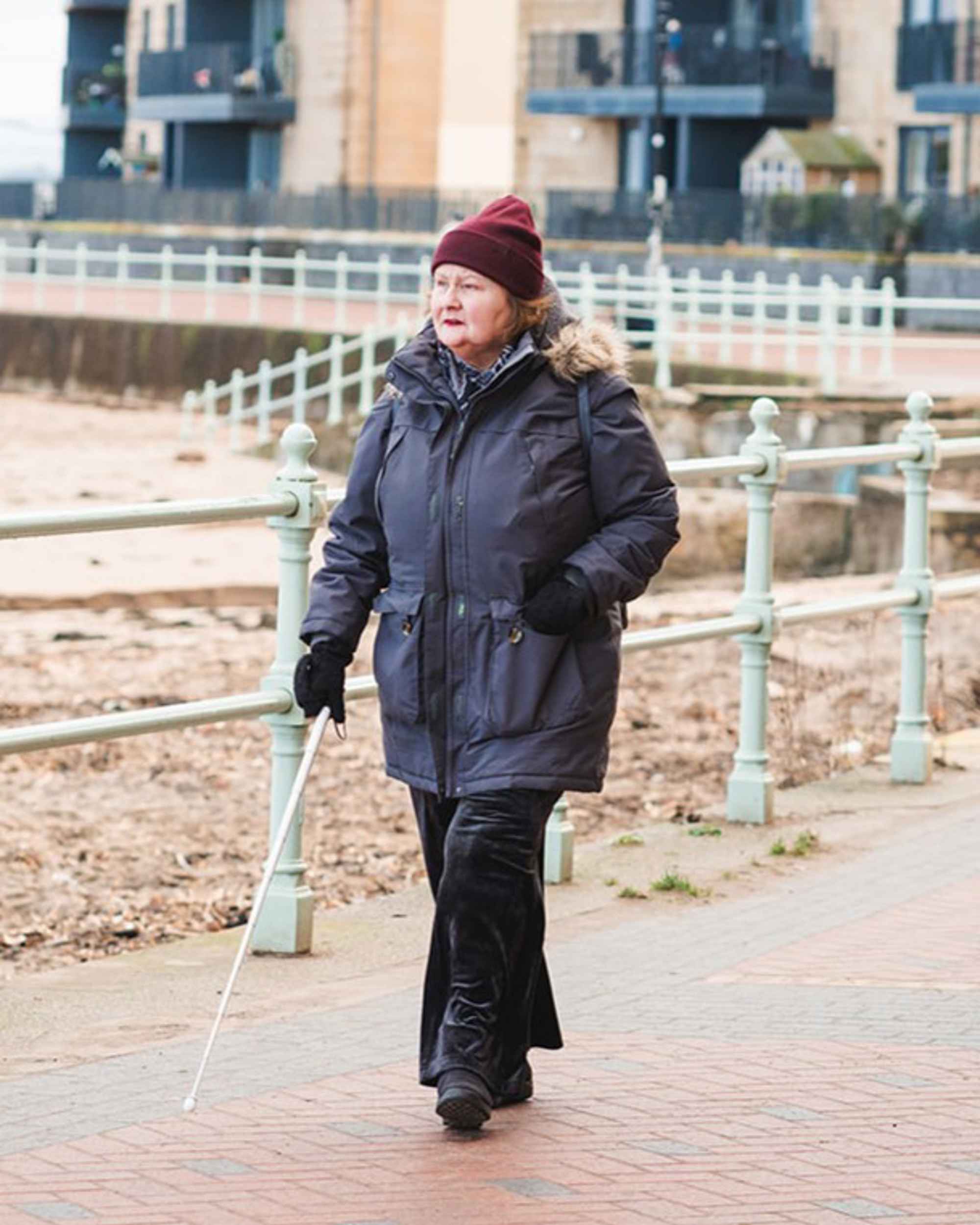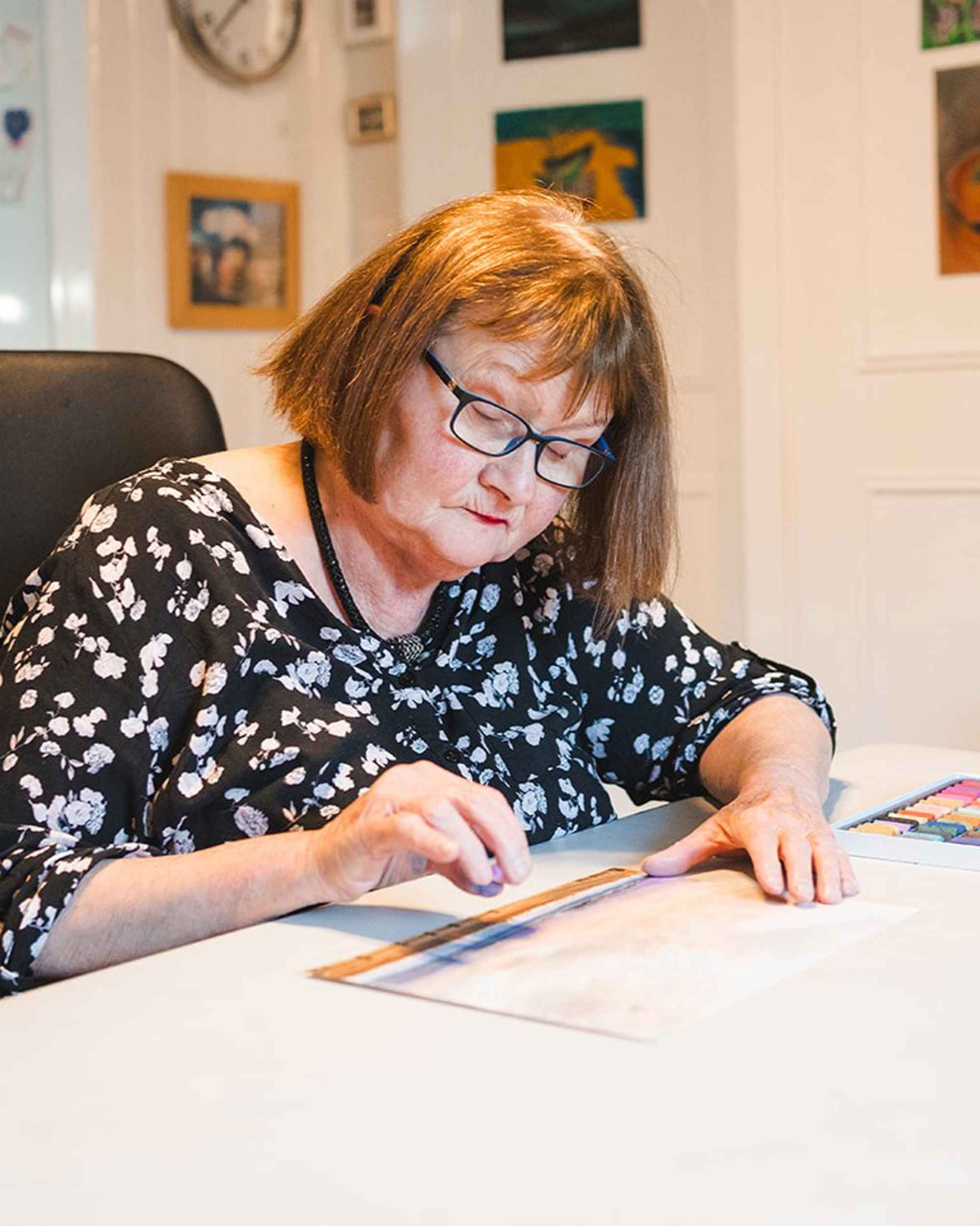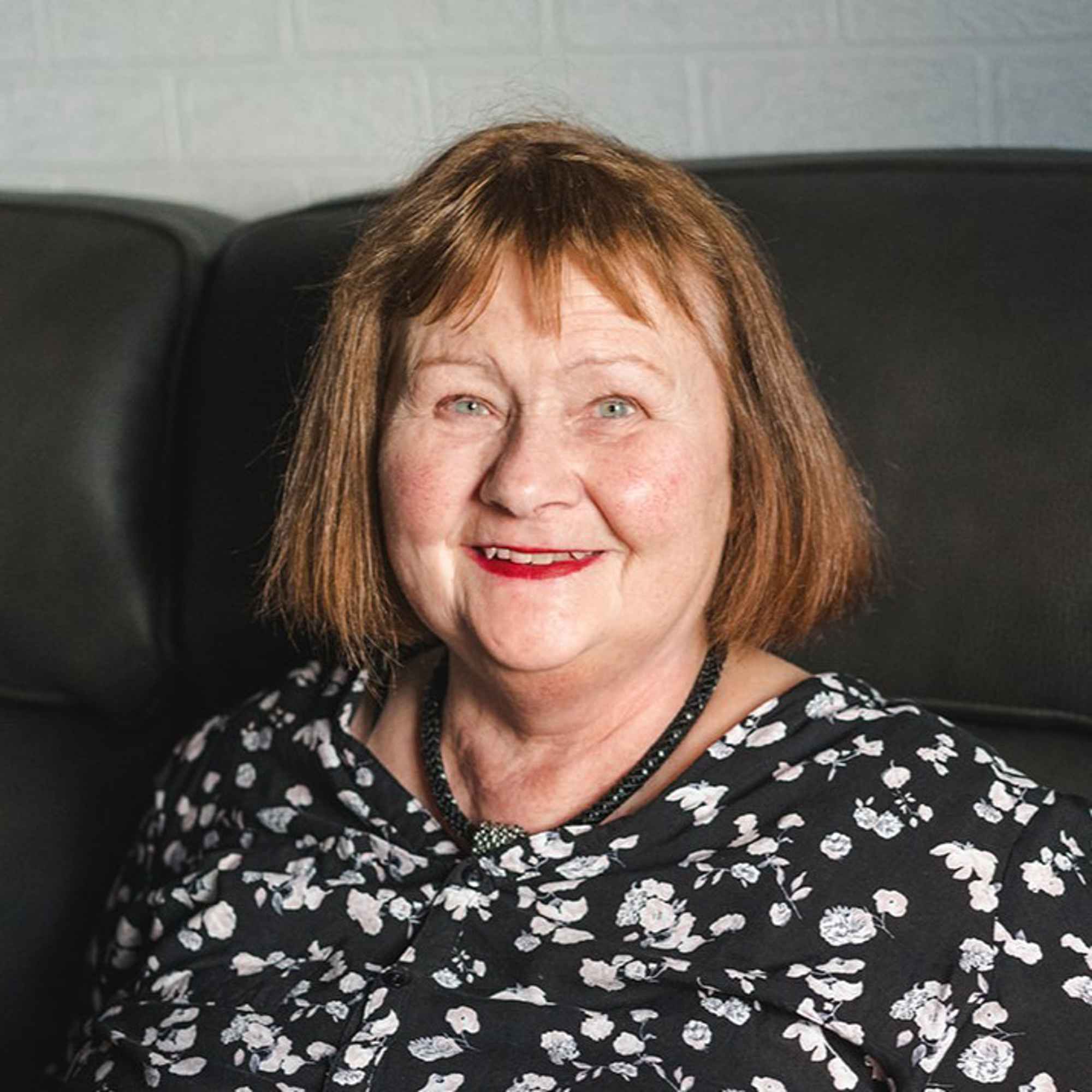Request a Gifts in Wills information pack

Anne's story
I was diagnosed in my early forties, about 25 years ago.
I’ve worn glasses for most of my life, because I had astigmatism, and I’d go to the optician for regular checkups. But because of my job as a teacher, I was always looking at close-up work, marking the kids’ books, looking at writing on the blackboard, then you’re trying to see what’s going on at the back of the classroom. You’re constantly shifting your vision. I found I struggled more and more.
I’d been given bifocals and varifocals and told to persevere, but I just couldn’t hack it. In the end, it was a part-time optician who also worked at the local eye hospital who said to me, “I can see what’s called macular degeneration. You need to go to your doctor as soon as possible and get referred to a consultant. You really need to get it looked at, to save the sight that you’ve got.”
At the hospital when they explained what it was, I felt like a stone sinking to the bottom of a pool.
My stomach just lurched. I was stunned, and then trying to think of questions, and, at the time, you can’t think of questions. It was like vertigo.

Back then, I was living on my own, and I had no other income coming in to support my mortgage. I was absolutely terrified of losing my job and then losing my house. I ended up off work for a long time with anxiety, stress and depression. Eventually I got medical retirement. I had to give up teaching. I was no longer a professional. I felt like I’d lost my sense of competency and self-worth. My whole life had fallen in on me.
And then somebody gave me the contact number for George, who ran the Edinburgh Macular Society Support Group.
I went along to a meeting, but I just felt like I was a square peg in a round hole, because I was still working age. So, after that I volunteered to run the Portobello support group, and I’ve been running the group since its inception, ten years ago. One of the main reasons I wanted to run the group was to make sure people had the information they needed about diagnosis, and knew where they could turn.
I wanted to help other people with macular disease.
When you’re teaching you’ve got altruistic reasons for going into public-facing jobs and that’s why I run the group. Also, it’s given me a sense of purpose. I try my best. I’m active, and I get out there. And people tell me I’m doing amazingly in all the things I do. But I’m getting older too. So that’s another reason I do it, for older people who are on their own, to try and help combat the loneliness and the isolation.

I say to my members, “Make use of the skills that you’ve got.” I’m now involved in storytelling, which I’ve been doing for three years. When I lost my eyesight, I gave away all my books. But I missed telling stories to my pupils and I thought to myself, “Well, I can’t read and write as well as I used to, so maybe storytelling is for me.” You find other pathways. You don’t give up.
The Macular Society is amazing with what they offer to the people who need them.
Our group members feel quite secure, in an insecure situation. They are insecure whereby they don’t know where the deterioration of their eyesight is leading them, but they’re secure in the knowledge that the Macular Society is doing all it can to put as much money as possible into research. There are improvements all the time; huge steps are being made to halt the progression of macular disease.
We’re all hopeful that soon, a cure will be found.

Anne believes in the research that will lead to a cure for macular disease. If you’re considering leaving a gift to the Macular Society in your Will, thank you – we’d love to hear from you.
Get the latest news and advice from the Macular Society
To hear about life-changing research, treatments and tips for living with sight loss, subscribe to our monthly enewsletter today. Together we can Beat Macular Disease.
Sign up to our free email newsletter
